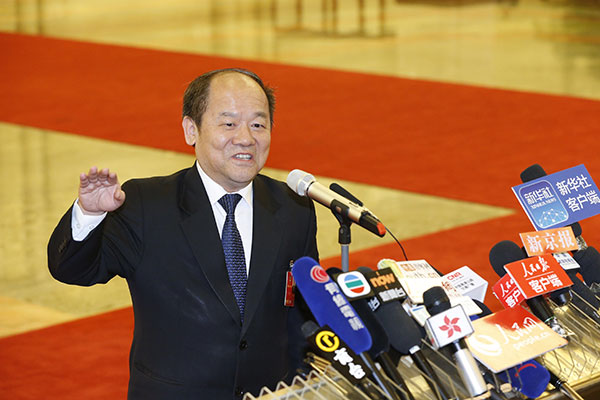
China’s new economy is gaining momentum, and supply-side structural reform has made considerable progress with investments in high-tech sectors leaping forward and steel and cement output witnessing single-digit declines, says Ning Jizhe, head of the National Bureau of Statistics, March 14, 2016.[Photo/Xinhua]
Ministers’ passage in the Great Hall of People is the main place for journalists to conduct interviews with leading officials at this year’s two sessions. By the afternoon of March 14, dozens of ministers from departments under the State Council answered questions and responded to hot issues on this passage.
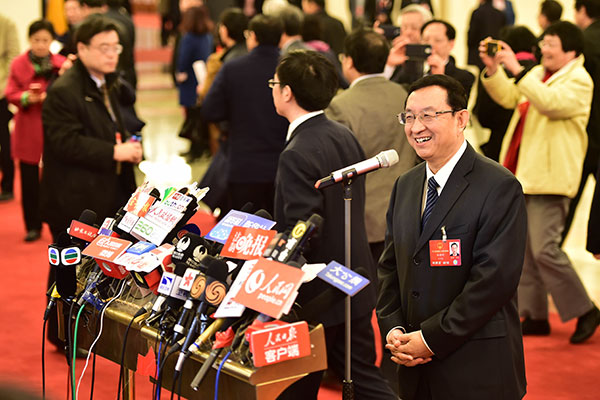
During the 13th Five-Year Plan (2016-2020), the Ministry of Culture will work on improving high-quality cultural products, and by the end of 2020, the culture industry is expected to be among the pillar industries of the national economy, says Luo Shugang, minister of Culture, March 13, 2016.[Photo/Xinhua]
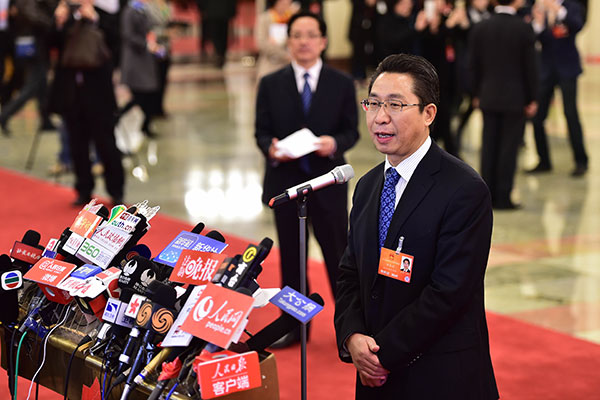
Commissioner of the State Intellectual Property Office Shen Changyu says that China’s protection of intellectual properties has been improving in recent years, but it still has not met the public’s expectations, so the office will further strengthen the protection work this year, March 13, 2016.[Photo/Xinhua]
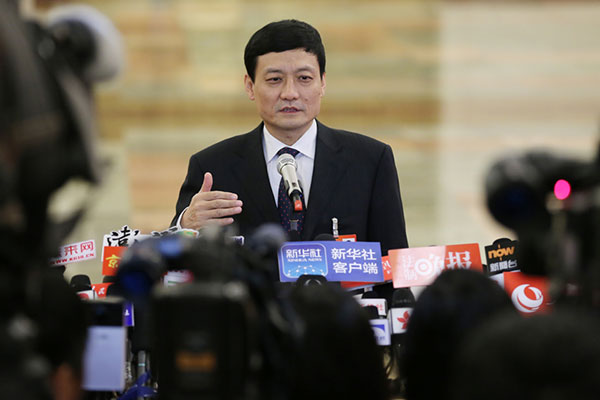
Reform of State-owned enterprises should protect the benefits of the staff first, and carry out more mergers and acquisitions instead of bankruptcy liquidation during the reform process, says Xiao Yaqing, chief of the State-owned Assets Supervision and Administration Commission, March 13, 2016.[Photo by Wang Zhuanfei/China Daily]
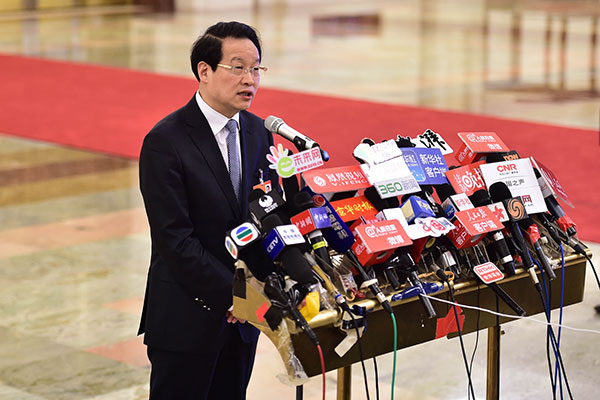
Xiang Junbo, chairman of the China Insurance Regulatory Commission, says that private investors are optimistic about China’s insurance industry as nearly 200 companies are applying for business licenses, but the commission is prudent about releasing licenses, as the insurance industry is closely tied to national finance security, March 13, 2016.[Photo/Xinhua]
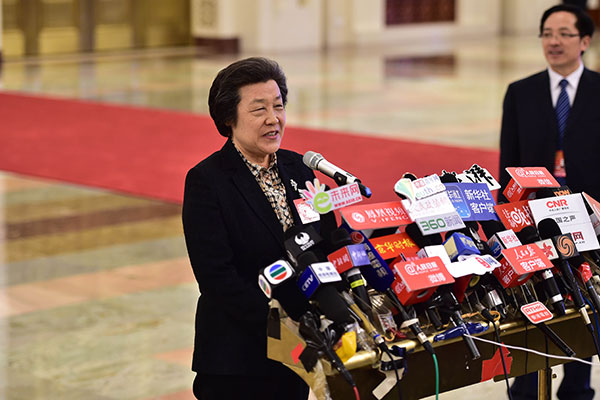
Minister of Justice Wu Aiying says the ministry will expand the scale of legal aid to involve low-income groups and more people with financial difficulties, March 13, 2016.[Photo/Xinhua]
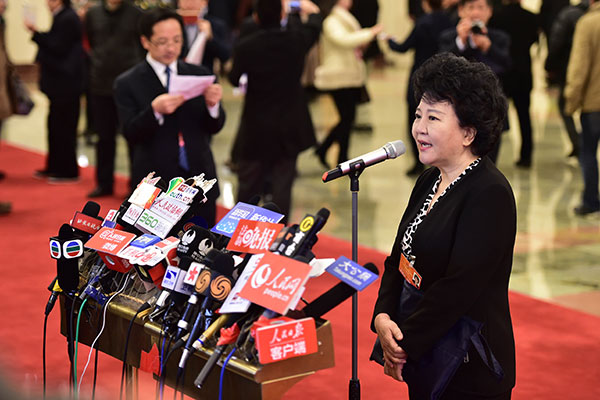
China is not yet prepared to introduce green cards for overseas Chinese, but it is aware of the need to make it easier for them to visit, says Qiu Yuanping, director of the Overseas Chinese Affairs Office of the State Council, March 13, 2016.[Photo/Xinhua]
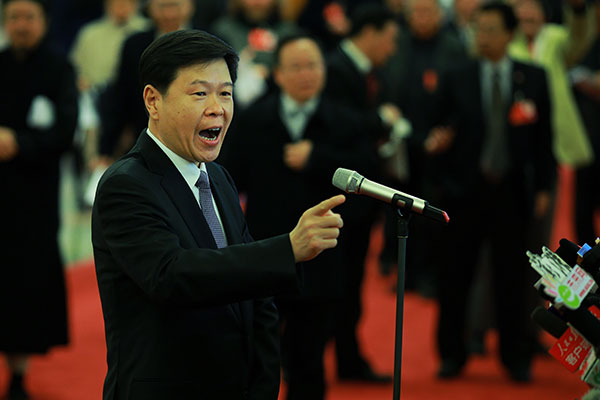
The government guarantees that taxes in all sectors will not increase when the business tax is replaced by value-added tax, and a detailed tax reform plan will be implemented on May 1, says Wang Jun, director of State Administration of Taxation, March 13, 2016.[Photo/Xinhua]
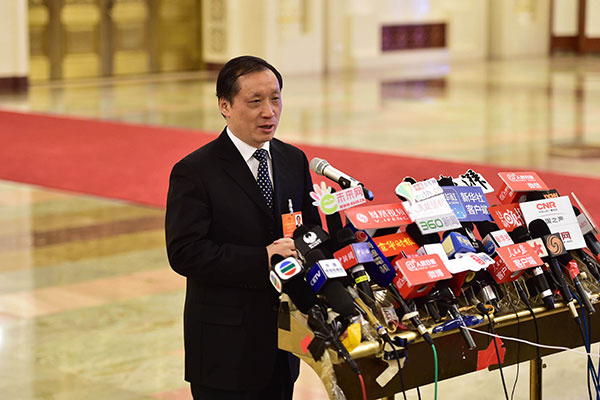
Tourists from both at home and abroad have been complaining about hygiene facilities at tourist spots, such as bad quality and insufficient numbers. China built and updated 22,000 toilets last year, and this year, the number will be 25,000, says Li Jinzao, head of the National Tourism Administration, March 13, 2016.[Photo/Xinhua]
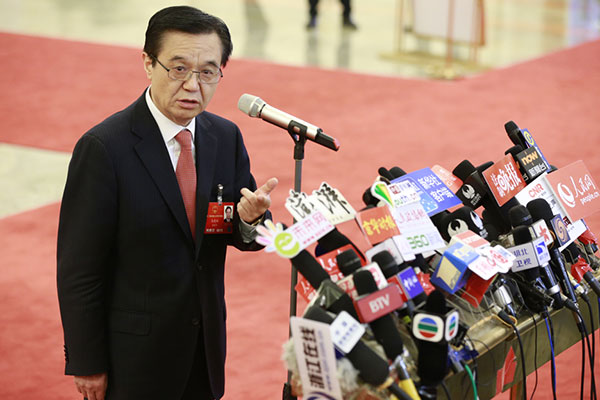
China’s policy on attracting foreign investment will not change, and it will further ease investors’ access to service and high-end manufacturing sectors and provide a supportive environment for foreign investment, says Minister of Commerce Gao Hucheng on March 13, 2016.[Photo by Feng Yongbin/China Daily]
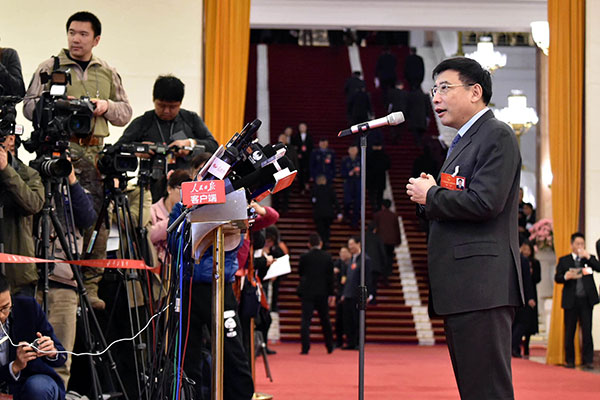
China’s new-energy automobile industry has entered a growth stage, and it produced more than 300,000 electric cars last year, and the number will be doubled this year, as more companies are getting into this field, says Miao Wei, minister of Industry and Information Technology, on March 13, 2016.[Photo/Xinhua]
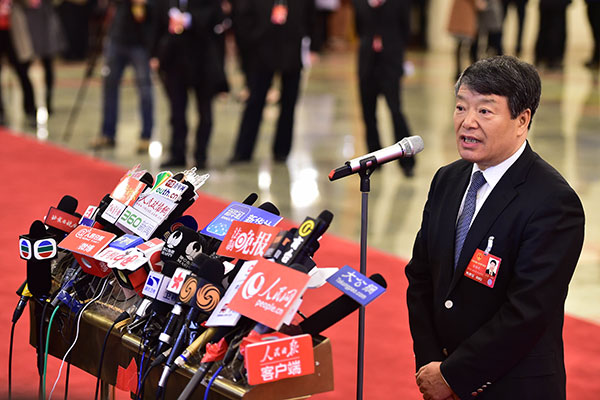
China launched a series of policies on improving growth and structural reform of traditional industries, and supply-side structural reform will be led by innovation in the future, says Xu Shaoshi, head of the National Development and Reform Commission, March 13, 2016.[Photo/Xinhua]
